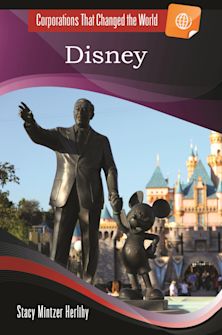Fragile Alliances
Labor and Politics in Evansville, Indiana, 1919-1955
Fragile Alliances
Labor and Politics in Evansville, Indiana, 1919-1955
This product is usually dispatched within 2-4 weeks
- Delivery and returns info
-
Flat rate of $10.00 for shipping anywhere in Australia
Description
How did the alliance between labor and the Democratic Party develop after the First World War? What role does Evansville play in an examination of this alliance? What was the impact of the alliance on U.S politics and society? These are some of the questions that Samuel W. White tackles in his book Fragile Alliances: Labor and Politics in Evansville, Indiana, 1919-1955.
Focusing on Evansville, Indiana, as a case study, White challenges traditional assumptions in the field, such as the following: labor has one political voice; labor is monolithic in electoral politics; the New Deal successfully reordered American society and politics. White examines the roles played by political repression, opposition by employers, and anticommunist forces within the community as well as the labor movement in undermining the labor-Democratic Party alliance in Evansville. He contends that by the 1950s, the impact of these forces blunted the potential of the labor movement and the Democratic Party to transform the political system by giving workers and their allies a permanent political space in electoral politics.
How did the alliance between labor and the Democratic Party develop after the First World War? What role does Evansville play in an examination of this alliance? What was the impact of the alliance on U.S politics and society? These are some of the questions that White tackles in his book Fragile Alliances: Labor and Politics in Evansville, Indiana, 1919-1955. Focusing on Evansville, Indiana, as a case study, White challenges traditional assumptions in the field, such as the following: labor has one political voice; labor is monolithic in electoral politics; the New Deal successfully reordered American society and politics. White examines the roles played by political repression, opposition by employers, and anticommunist forces within the community as well as the labor movement in undermining the labor-Democratic Party alliance in Evansville. He contends that by the 1950s, the impact of these forces blunted the potential of the labor movement and the Democratic Party to transform the political system by giving workers and their allies a permanent political space in electoral politics.
Much of the published literature on labor and politics in the U.S. is focused on national events and organizations that make labor appear as a monolith in electoral politics. White diverges from the national focus of the majority of this literature, instead looking at labor and politics at the local level. While much of the published literature argues that the alliance between labor and the Democratic Party in the 1930s was a formidable force that reordered American society and politics, White shows that in Evansville, the alliance was anything but that. Racked by political repression, opposition by employers, and anticommunist forces within the community and the labor movement itself, the alliance was remarkably fragile and incapable of sustaining the momentum it had established in the 1930s.
Table of Contents
Abbreviations
Introduction
Evansville
Americanism and the Retreat of Labor in the 1920s
Depression Politics and Industrial Organization
War Politics and the Labor Movement
Labor, Politics, and Anticommunism in Postwar Evansville
Conclusion
Bibliography
Index
Product details
| Published | 30 Jul 2005 |
|---|---|
| Format | Hardback |
| Edition | 1st |
| Extent | 222 |
| ISBN | 9780313321573 |
| Imprint | Praeger |
| Dimensions | 235 x 156 mm |
| Series | Contributions in Labor Studies |
| Publisher | Bloomsbury Publishing |

ONLINE RESOURCES
Bloomsbury Collections
This book is available on Bloomsbury Collections where your library has access.



































